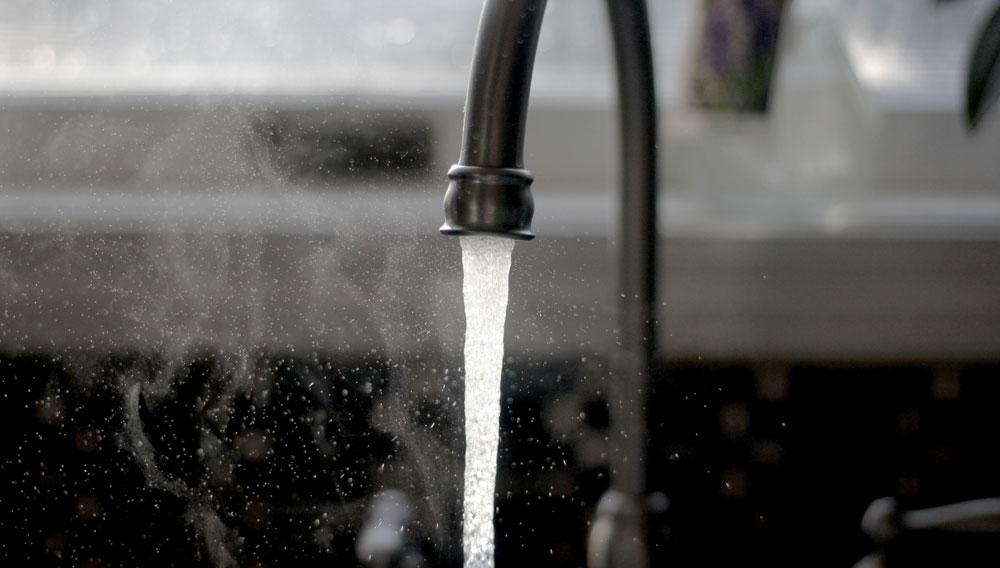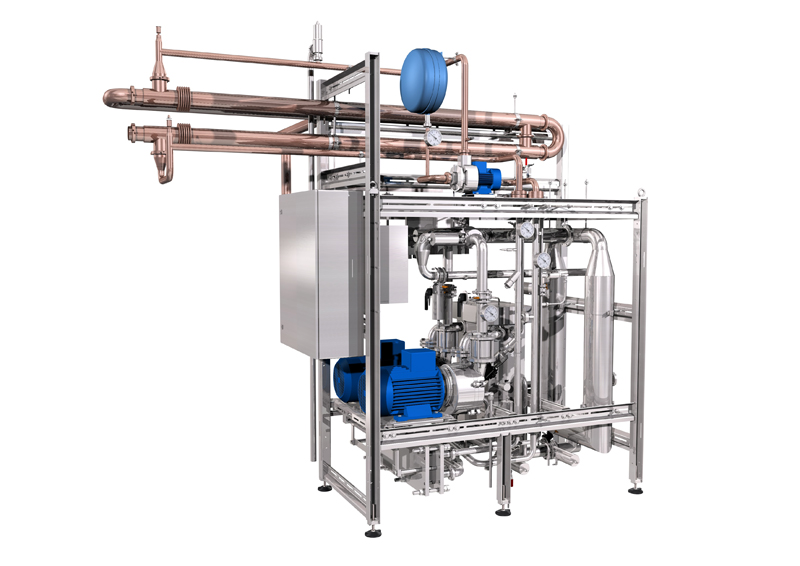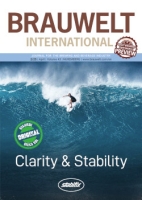With the Eco vacuum pump KHS can already help the brewing industry to save almost 100 % water compared to the classic water ring pump. The new KHS Eco+ vacuum pump – or rather, the newly designed KHS Eco+ module integrated into the Eco vacuum pump – now has the added benefit that classic coolants for water recooling are now a thing of the past. This means that customers no longer have to invest in piping for coolant transfer which is often complex and costly.
From May 26th to 30th 2013, brewing scientists in Europe will converge on Luxembourg at the EBC congress. For the first time in the long history of the EBC, it will be held in this small country bordering Belgium, France and Germany. Luxembourg is a country with much to offer, as brewers will undoubtedly find out in May. We spoke with EBC president Dr. Stefan Lustig about what awaits those attending the Congress.
The European Brewery Convention (EBC) in Brussels is much more than merely the organiser of a biennial scientific congress in one of the member countries. The EBC is the technical and scientific arm of “The Brewers of Europe”, the umbrella organisation of the European Brewers’ Associations, and acts for them in an advisory and supporting function. After a three-year term in office, the posts of both EBC President as well as Vice-President were up for election.
In part I of this contribution (BRAUWELT International no. 5 2011, pp. 290-292), possible strategies for therecovery of water and recyclables in breweries were summarized. As a sequel, part II deals with effluent end-of-pipe treatment and elaborates on the solution that may ultimately prove to be the best for an existing brewery, taking account of considerations having a bearing on industrial water recovery. Solid recyclables, such as beer spent grains or yeasts, also have a high material and energy potential. Therefore, possibilities of recycling same are discussed, leaving aside agricultural use. This will become part of a future holistic concept.
Water is the most important raw material of the beverage industry – and clean drinking water is an increasingly valuable good. Apart from the economic responsibility, our industry has, therefore, also a major social responsibility to protect this vital resource. Efficient and sustainable water management requires an integrative approach, which taps the entire optimization potential around water usage. This includes the evaluation of local water catchment areas as well as the reduction of water consumption and the full recycling of any wastewater arising.
This article gives an overview of the implementation of co-culture fermentation processes in beverage production. Several examples for spontaneous fermentation used in the production of beverages all over the world are presented. Regulation mechanisms and microbial interaction in mixed cultures are shown. Furthermore, the implementation of controlled co-culture fermentation processes for the development of reproducible industrial production of new beverages is discussed.
This year the 74th Annual Meeting of the American Society of Brewing Chemists (ASBC) took place in Fort Myers, Florida. The popular ASBC meetings draw many of the best brewing scientists from around the world as it provides the opportunity to present their work and share their knowledge. In other words, it provides a platform for global exchange. This year, more than 240 participants from over 15 countries attended the meeting. The attendees at this international conference were global brewers, craft brewers, suppliers and academics engaged in brewing science.
The water quality requirements in a brewery are very complex and vary between different process areas. One issue is for example dissolved gases. Oxygen especially plays a decisive role for high gravity dilution and chase water coming in contact with the final product. In other areas it is often dissolved carbon dioxide that needs to be removed from water to prevent corrosion. This article introduces two examples where water degasification with membrane technology has been installed: at a Boon Rawd Brewery, Thailand, and at Krostitzer Brewery, Radeberger Group, Germany.
Despite dire predictions after the management buy-out from the InBev Group in autumn 2006, the brewery Hofbrauhaus Wolters GmbH, Brunswick, has maintained its position in the market even against the negative trend. With the installation of an energy storage system and the conversion of the wort boiling system to the JETSTAR™ system of GEA Brewery Systems GmbH, Kitzingen, the brewery did not only want to cut energy costs, it also wanted to prevent current peaks – a problem that had often been caused by the old vapour compression system – without affecting the wort quality.
The beverage industry in India is booming. After the US and China, beverage consumption is the third largest worldwide. It looks like it will continue growing. According to market analyses, beverage sales in India will have gone up by more than 60 percent by 2012, compared to 2008 figures. A large number of young people and their enthusiasm for the Western way of life, together with a growing consumption-orientated, high purchasing power middle class create an increasing demand for practical and hygienically packaged food. The potential for the packaging industry in India has been recognised some time ago by the two Trade Fair Organisations, Messe München GmbH and Messe Dusseldorf GmbH. They have decided to combine their resources. In future, drink technology India and International PackTech India will be held simultaneously at one location. The venue will be the Bombay Exhibition Center in Mumbai from 18th to 20th November 2010.

836 beers from more than 30 countries entered the European Beer Star contest 2009. 78 jury members from seventeen countries awarded gold, silver and bronze medals in 41 categories – ranging from German lager to Bohemian Pilsner, English Ale or herb beer. The organizing committee consisting of the German Association Private Brauereien and the Association of Small and Independent Breweries in Europe was quite pleased with the fact that attendance increased by 22 percent compared to the previous year – a record participation. Unlike at similar beer contests, only three types of medals are awarded per category (gold, silver and bronze). That is the reason why the European Beer Star is said to be one of the toughest beer contests all over the world.
In many breweries, degassed water is prepared using a vacuum, column or membrane water degassing process. The patented Danish Iso-Mix mixing system, primarily developed for mixing liquids and for cleaning vessels, can also be used for water degassing in combination with a stripping gas (CO2). The system, operating on the basis of the pressure degassing principle, is installed in Braustätte Mönchengladbach Oettinger for water degassing.




